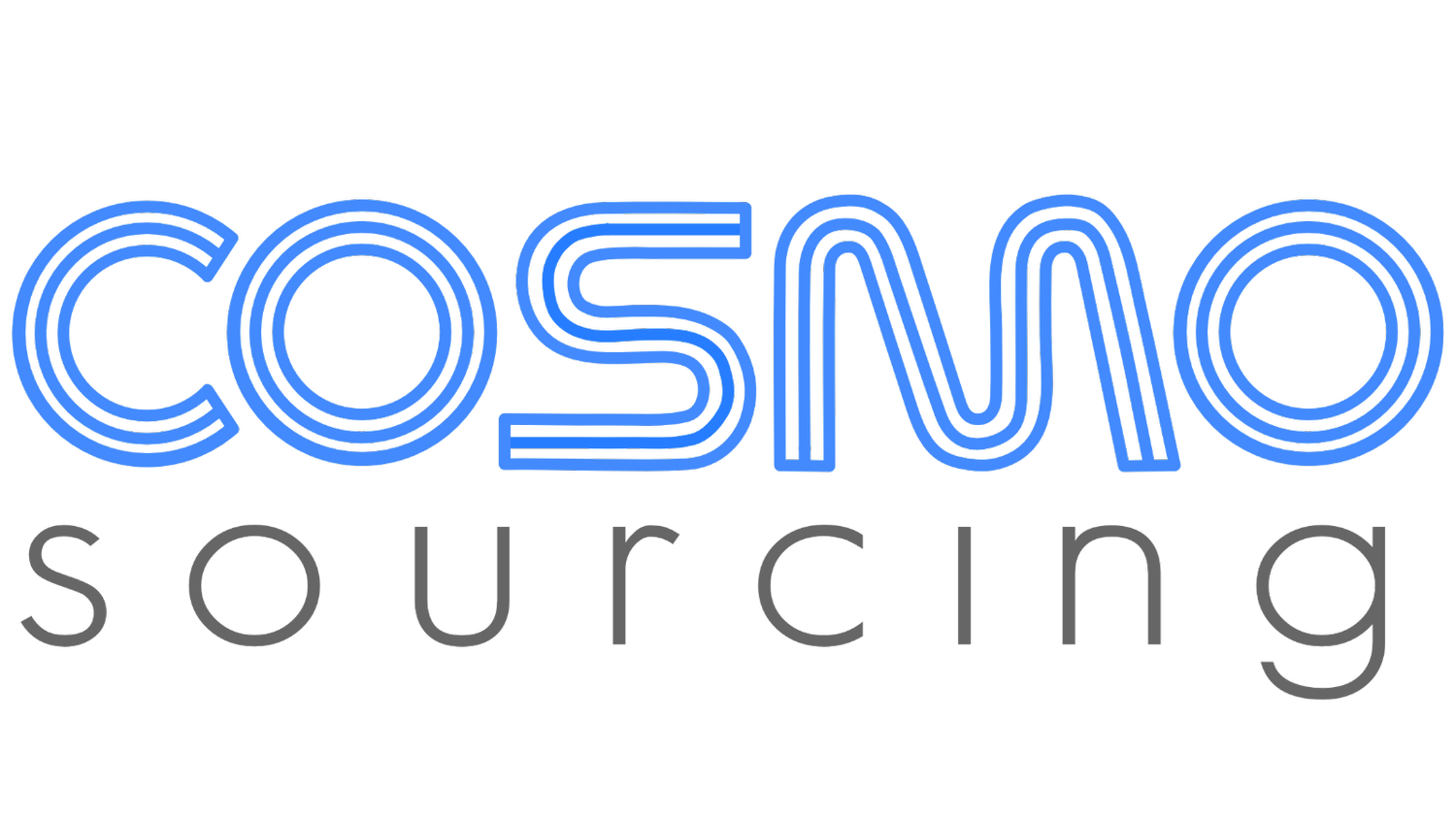Low-Cost Country Sourcing in 2025 Guide
The global sourcing landscape is undergoing a dramatic transformation, particularly as we progress through 2025. Businesses worldwide are reassessing their low-cost country sourcing (LCCS) strategies in response to significant technological disruptions, evolving regulatory frameworks, and shifting geopolitical dynamics. According to industry reports, nearly 70% of companies are experiencing increased pressure to reassess their procurement strategies, with sustainability emerging as a cornerstone of these discussions. The previous focus on merely seeking the lowest labor costs has transitioned into a more intricate balancing act that incorporates aspects such as sustainability, resilience, and strategic positioning. As a result, organizations are now seeking sourcing solutions that align with not only cost-saving measures but also ethical and environmental considerations.
Companies like Cosmo Sourcing are at the forefront of this evolution, helping businesses to navigate the new realities of global procurement effectively. They report that approximately 56% of organizations are investing more in sourcing partnerships that emphasize ethical labor practices and sustainable operations. The traditional playbook of simply identifying the cheapest manufacturing sites is no longer adequate in today's interconnected economy, forcing companies to develop new methodologies that evolve with changing market conditions.
As companies engage with these new sourcing paradigms, they are discovering that innovation and adaptability are crucial. A staggering 80% of sourcing professionals have indicated that the ability to pivot quickly in response to global events has become a key competitive advantage. Thus, the role of strategic sourcing is not just about cost but involves a holistic assessment of global market trends, regulatory compliance, and the need for sustainable pursuits, enabling organizations to thrive in a complex and ever-changing landscape.
Major Trends Shaping LCCS in 2025
1. Digital Transformation in Procurement
The digital revolution has fully reached the procurement sector. Organizations are rapidly adopting artificial intelligence, automation, and advanced digital platforms to transform their sourcing operations.
AI-powered analytics enable procurement teams to process vast amounts of supplier data and market intelligence in real-time. Machine learning algorithms predict supply chain disruptions, analyze supplier performance patterns, and optimize pricing negotiations to enhance overall supply chain efficiency and effectiveness. These tools are becoming indispensable for managing complex, multi-country sourcing networks.
Blockchain technology is emerging as a game-changer for supply chain transparency. By creating immutable records of transactions and product movements, blockchain enables companies to verify supplier claims and ensure compliance with regulations. Forward-thinking sourcing partners, such as Cosmo Sourcing, are already implementing blockchain solutions to ensure product authenticity and uphold ethical sourcing practices.
The Internet of Things (IoT) provides unprecedented visibility into manufacturing processes and logistics operations. Smart sensors generate continuous data streams that enable real-time monitoring and optimization, allowing companies to identify bottlenecks and respond quickly to disruptions.
2. Shift Toward Sustainable & Ethical Sourcing
Environmental, Social, and Governance (ESG) considerations have moved from the periphery to the center of sourcing strategies. Consumer demands, investor expectations, and regulatory requirements drive this shift.
Consumers are increasingly making purchasing decisions based on a brand's environmental and social practices. Companies that fail to demonstrate a genuine commitment to sustainability risk losing market share. This pressure is compelling businesses to scrutinize their entire supply chains for environmental impact and labor practices.
Regulatory frameworks around sustainability are tightening globally. The EU's Corporate Sustainability Due Diligence Directive and similar legislation create new compliance requirements for companies sourcing from low-cost countries. Carbon border adjustment mechanisms are adding another layer of complexity to sourcing decisions.
Fair labor practices and human rights considerations are non-negotiable elements of modern sourcing strategies. Companies are implementing comprehensive supplier codes of conduct and investing in worker welfare programs. The reputational and legal risks of labor violations have made ethical sourcing a business imperative.
3. Expanding Low-Cost Sourcing Destinations
The era of China-centric sourcing is giving way to a more diversified approach. While China remains crucial, companies are actively developing alternative locations as part of "China Plus One" strategies.
Vietnam has emerged as a preferred destination for electronics, textiles, and furniture manufacturing. The country offers competitive labor costs, improving infrastructure, and favorable trade agreements. India is capitalizing on its vast labor force and growing technical expertise, particularly in the pharmaceuticals and electronics assembly sectors.
Mexico's proximity to the US market and the USMCA agreement position it as an ideal nearshoring location. Eastern European countries, including Poland and Romania, are attracting interest from Western European companies seeking shorter supply chains.
Cosmo Sourcing has established strong networks across these emerging destinations, helping clients identify and qualify suppliers that meet their specific requirements while managing the complexities of multi-country operations.
4. Rise of Nearshoring and Friendshoring
The concept of sourcing based purely on cost optimization is being replaced by strategies that prioritize resilience and geopolitical alignment. Nearshoring—bringing production closer to end markets—and friendshoring—sourcing from politically aligned countries—represent fundamental shifts in LCCS approaches.
Nearshoring offers multiple advantages: shorter supply chains reduce transportation costs and carbon emissions while improving responsiveness to market changes. The COVID-19 pandemic exposed the vulnerabilities of extended supply chains, accelerating this trend.
Friendshoring reflects the increasing influence of geopolitical considerations on sourcing decisions. Companies are prioritizing suppliers in countries that share similar values and strategic interests, aiming to reduce supply chain weaponization risks.
5. Geopolitical & Trade Policy Influence
The global trade landscape is being reshaped by new agreements, evolving tariff structures, and strategic alliances. The Indo-Pacific Economic Framework (IPEF), the Regional Comprehensive Economic Partnership (RCEP), and other initiatives are creating new frameworks for international trade.
Technology export controls and strategic competition between major powers are influencing sourcing decisions in high-tech industries. Environmental regulations and carbon pricing mechanisms are adding new dimensions to trade policy, creating additional costs for sourcing from countries with less stringent environmental standards.
Implications for Sourcing Strategy
Resilience Through Diversification
Leading companies are implementing multi-country, multi-supplier strategies that provide buffers against disruptions. Effective diversification requires careful analysis of risk correlations, ensuring alternative suppliers aren't vulnerable to the same disruptions.
Integration of Digital Tools
Digital transformation in procurement is crucial for achieving a competitive advantage. Successful integration requires organizational change, process redesign, and cultural transformation. Procurement teams need new skills in data analytics and technology management.
ESG Alignment
Environmental and social compliance has evolved from a reputational consideration to a fundamental business requirement. This integration begins with comprehensive supplier assessment frameworks that evaluate environmental practices, labor conditions, and governance structures.
Total Cost of Ownership
Modern sourcing decisions require sophisticated analysis beyond unit price comparisons. Total cost calculations now incorporate transportation costs, inventory carrying costs, quality considerations, compliance requirements, and risk factors.
Strategic Recommendations
Employ Technology-First Procurement
Organizations must embrace a technology-first approach, leveraging AI analytics, blockchain verification, and digital collaboration platforms. Cosmo Sourcing's proprietary technology stack exemplifies this approach, providing clients with real-time visibility and predictive analytics across their supply chains.
Conduct Comprehensive Supplier Audits
Regular, thorough supplier audits encompassing ESG considerations are non-negotiable. Environmental audits should assess energy usage, waste management, and carbon emissions to ensure compliance with environmental regulations. Social audits must evaluate working conditions, wages, and worker rights. Governance audits examine business ethics and compliance systems.
Develop Regional Sourcing Hubs
Creating regional sourcing hubs provides flexibility and resilience. Each hub should maintain relationships with multiple qualified suppliers, enabling rapid scaling or switching as conditions change. Cosmo Sourcing's established regional presence facilitates this hub-based approach for clients.
Monitor Geopolitical Developments and Trade Policy
Continuous monitoring of geopolitical developments and changes in trade policy is essential. Companies should establish early warning systems and conduct regular scenario planning exercises to prepare for various outcomes.
Outlook to 2025 and Beyond
The transformation of low-cost country sourcing represents a fundamental shift in global business operations. By the end of 2025, successful companies will have successfully transitioned from traditional cost-focused sourcing to strategic, sustainable, and resilient procurement frameworks.
The integration of advanced technologies will continue to accelerate, with AI and automation playing increasingly central roles. Sustainability will become increasingly critical as climate impacts intensify and regulations become tighter. Geopolitical realignment will continue shaping sourcing landscapes, with regionalization and friend-shoring trends intensifying.
Success in this new environment requires viewing LCCS not as a tactical cost-reduction exercise, but as a strategic capability that drives competitive advantage. Companies partnering with experienced sourcing specialists, such as Cosmo Sourcing, are better positioned to navigate these complexities, leveraging established networks, technological capabilities, and deep market knowledge.
The future of low-cost country sourcing isn't about finding the cheapest supplier—it's about building smart, adaptable supply networks that can thrive in an uncertain world. The companies that embrace this complexity and turn it into a competitive advantage will be the winners in tomorrow's dynamic global economy.
COSMO SOURCING // Anywhere But China Sourcing!
As the landscape of global sourcing continues to evolve, having the right partner can make the difference between merely surviving and truly thriving. Cosmo Sourcing brings together deep market expertise, cutting-edge technology, and extensive supplier networks to help your business navigate the complexities of modern LCCS.
Whether you're looking to diversify your supplier base, implement sustainable sourcing practices, or leverage digital tools to optimize your procurement processes, our team of experts is ready to help you develop and execute winning strategies for 2025 and beyond.
Don't let the challenges of modern sourcing hold your business back. Take the first step toward transforming your sourcing strategy today.
Contact us at info@cosmosourcing.com or visit https://www.cosmosourcing.com/contact-us to schedule a consultation with our sourcing experts.
The future of low-cost country sourcing is here—make sure your business is ready to seize the opportunities it presents.

